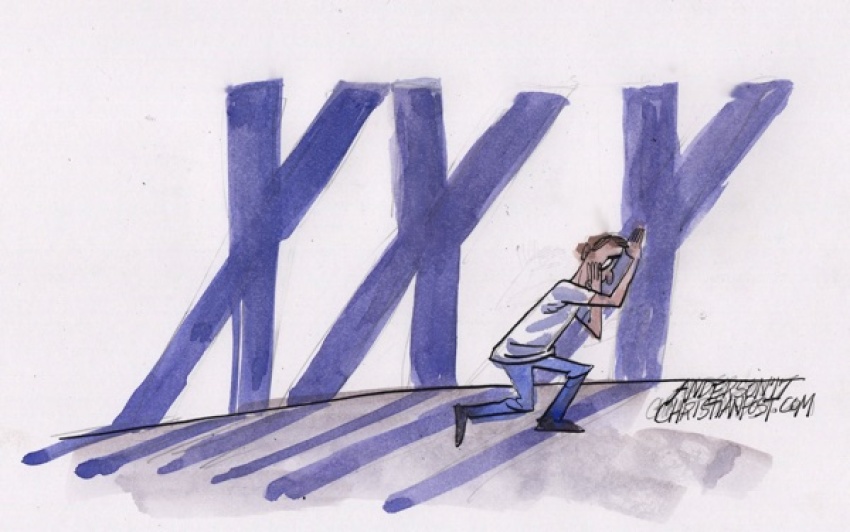Porn Fuels Loneliness, Research Finds

Pornography and loneliness feed off of each other in a toxic way, creating a "vicious cycle" that erodes human relationships and the health benefits those relationships provide, according to a marriage and family therapist and scholar.
"If loneliness can lead to pornography use, and pornography use may bring about or intensify loneliness, these circular linkages may create a vicious cycle, pulling the user even further from health-promoting relationship connections," said Mark Butler, a professor in the school of family life at Brigham Young University, in an essay on the Institute for Family Studies blog Tuesday describing research he conducted recently.
Human sexuality is biologically and neurologically tethered to a relationship experience, Butler explained, and is "carefully designed to support both conception and bonding."
Yet, "when pornography is used to trigger the sexual system, the biology of the sexual system produces a false relationship experience, offering temporary 'relief' from lonely feelings, but soon enough, the user again faces a real-world relationship void."
"That emptiness may trigger loneliness. Additionally, porn invites the mental fantasy of a relationship experience. Thus, the mind fantasizes and biologically the sexual system tricks the brain into imagining it's having a relationship experience and can thus mask loneliness — but only temporarily."
He continued that the storylines present in porn present false and unrealistic narratives about sexuality that prove disappointing. Users cannot escape the fact that when the experience of porn is over, they remain alone in an empty room and "when sexual intoxication wears off, the experience may only end up excavating a deeper emptiness — a setup for a vicious cycle," he explained, noting how it tricks the brain.
His words dovetail with author Matt Fradd, whom The Christian Post interviewed in September about his book The Porn Myth: Exposing the Reality Behind The Fantasy of Pornography.
"There's this overwhelming sense of 'It's only a matter of time until our culture, if you want to call it that — this thing in which we live, I'm not sure if it's a culture — it's only a matter of time before it looks upon pornography as we now do upon smoking," Fradd told CP at the time.
"Science is finally catching up with the truth that the Church has always proclaimed," he added.
Fradd writes extensively how pornography triggers neurotransmitters such as epinephrine — also known as adrenaline — dopamine, and others, so that when it is used compulsively, it becomes addictive. When porn is used compulsively, he explains, the hijacking of the brain intensifies and resets the "pleasure thermostat" requiring the user to consume even more porn or increasingly explicit material to boost the chemical levels sufficient to obtain the same high and feel normal.
Butler continued: "Recent scholarship suggests that pornography's sexual scripts of eroticism, objectification, promiscuity, and misogyny (domination) are, on their face, fundamentally anti-relationship and anti-attachment and 'conceptually linked to loneliness.'"
Such things are especially bad for young people and their developing bodies, he went on to say, explaining how porn distorts their views of women and men, intimacy, and sexuality during their formative years and disrupts their long-term health.
"Further, when teens substitute sexting, sexualized Snapchat posting, and so forth for real-life relationship bids, these seem likely to further frustrate their relationship attempts. Even as porn hypes serial hooking up, it may seriously be getting in the way of young people preparing for and forming their most important, fulfilling, and intimate relationships in life that are critical to their well-being."
"Instead of allowing sexually-explicit media to train us and the next generation for self- and other-objectification — diminishing our wholeness and humanity in the process — it may be time to consider the real possibility that pornography use poses a very public health risk to our relationships," Butler concluded.



























